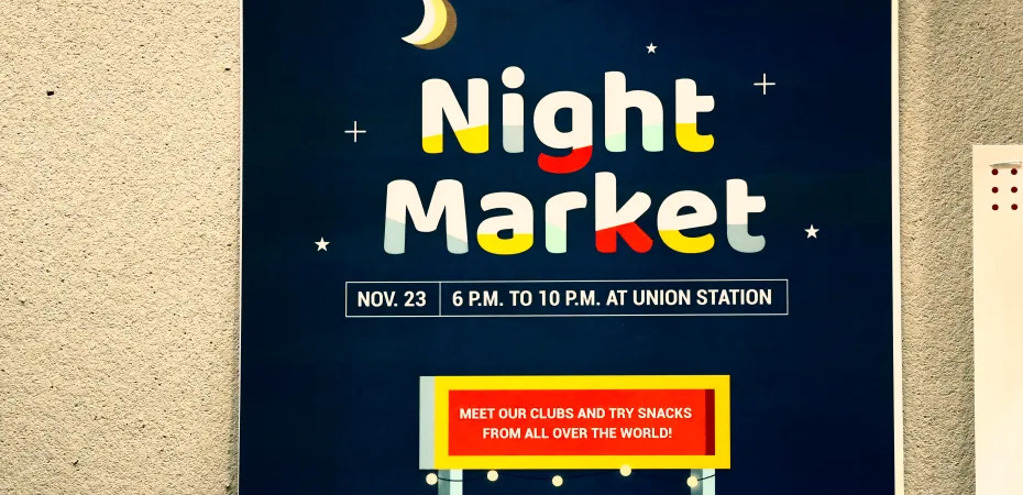On Nov. 23, BUSU hosted their first-ever Clubs Night Market to celebrate multiculturalism in support of Brock International Education week.
The BUSU Clubs Night Market took place in Union Station from 6:00 p.m. to 10:00 p.m., where 17 different cultural BUSU clubs had booths offering a taste of their cuisine to those attending. This allowed visitors the opportunity to expand their knowledge of different cultures’ traditions and cuisine.
Before the event, students could secure entry by purchasing tickets through the BUSU website, which were verified at the entrance. Said tickets were priced at $15, which granted students five “food tickets,” meaning they could try five different food items from any of the booths. Additionally, BUSU advertised on their Instagram page that the first 200 ticket holders entering the event would receive a free bubble tea drink.
As previously mentioned, the event was BUSU’s contribution to Brock’s International Education Week, which happens every year at Brock during the third week of November. The purpose behind Brock’s International Education Week is to provide international members of the Brock community the opportunity to share their experiences and culture in a way that highlights and empowers their unique identity. It also serves to educate the Brock community on the valuable contributions of international and multicultural experiences within the university and Canada as a whole.
Regarding what was truly offered across the booths, the variety of foods varied from savory dishes, snacks, non-alcoholic drinks, sweets, pastries and many more. Different booths focused on providing different kinds of food options. For instance, the South Asian Women’s Society (SAWS) focused more on providing sweets, as seen with their Kulfi stand and South Asian candy bags. In contrast, other organizations, such as the Hellenic Student’s Association (HSA), served savoury foods such as chicken souvlaki and various Greek snacks.
Although the event focused on food, some clubs also implemented interactive elements to gather attention and share their culture. For instance, the Sri Lankan Students Association (SLSA) encouraged Brock students to participate in a traditional game where they had to guess the number of seeds a papaya at the booth had. After cutting the papaya open, whoever had the closest guess won a gift card to their chosen store.
Additionally, the stage at Union Station was open for music and dance acts performed by club members. Some highlights include a traditional Hindu choreography performed on behalf of the Hindu Students Association and BrockLive4Dance’s hip-hop dance performance facilitated by their competing team, MKI.
To keep up to date with future BUSU events, be sure to visit their Instagram and check out new events on their website.

